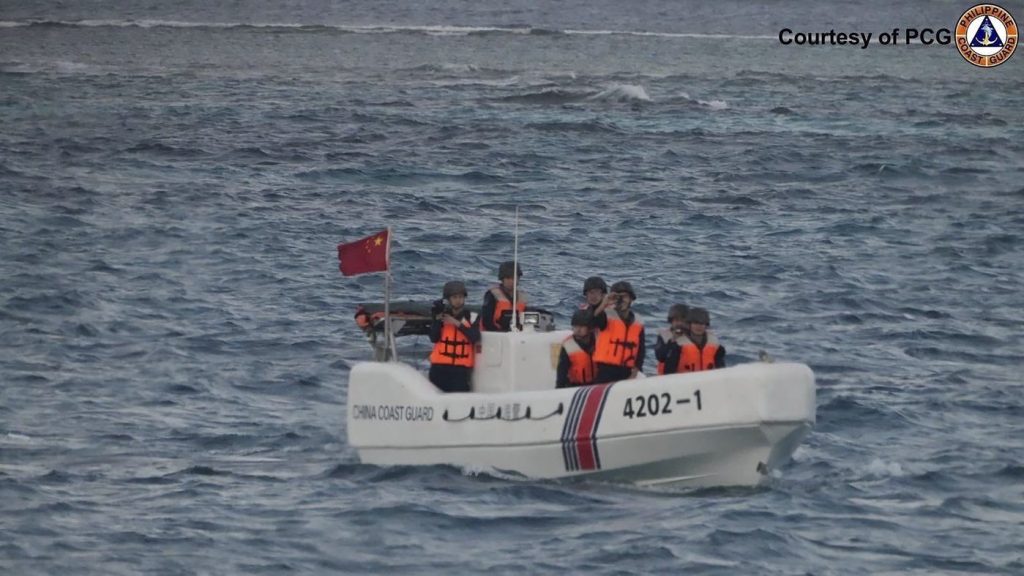In Manila, Philippines, a significant incident took place in the South China Sea, where multiple Chinese coast guard ships and a Chinese navy helicopter engaged in harassment against Philippine fisheries vessels that were conducting a scientific survey. The harassment occurred on Friday near Sandy Cay, which is characterized by three small uninhabited sandbars flanked by an artificial island base established by Chinese forces, as well as a Philippines-occupied island within the Spratlys archipelago. This situation forced the Philippine vessels to cancel their operation.
According to the Philippine coast guard, the Chinese coast guard ships approached two larger Philippine vessels, which had to maneuver to avoid a collision. In addition, a Chinese navy helicopter flew low over two smaller boats accompanying the survey ships, contributing to the decision to abort the scientific mission. Philippine coast guard videos illustrate the proximity of a Chinese coast guard ship, identified as one of the vessels involved, alongside footage of a Chinese military helicopter hovering dangerously close to a vessel displaying the Philippine flag.
While there was no immediate reaction from Chinese officials, China's longstanding position asserts sovereignty over most of the South China Sea. The country has accused rival claimant states, including the Philippines, Vietnam, and Malaysia, of encroaching on what it considers its territory. China has attempted to delineate its territorial claims with a controversial "nine-dash line" depicted in various maps, yet it has not provided specific coordinates to support these claims.
This latest episode marks another flare-up in the ongoing territorial disputes in one of the world’s busiest trade routes, testing the commitment of President Joe Biden's administration to maintain a counterbalance to China's increasingly assertive actions in these contested waters. Biden's predecessor, Donald Trump, faced similar challenges as China engaged in aggressive maneuvers in the South China Sea, the East China Sea, and around Taiwan, the latter being a self-governing island that Beijing has pledged to take by force if necessary.
In a recent engagement, U.S. Secretary of State Marco Rubio spoke with Philippine Foreign Secretary Enrique Manalo. They discussed mutual concerns, specifically addressing the "dangerous and destabilizing actions" of the People's Republic of China (PRC) in the South China Sea. The State Department communicated that Rubio highlighted how the PRC's behavior undermines regional peace and stability, asserting that such actions are inconsistent with international law.
Rubio reaffirmed the United States’ steadfast commitments to the Philippines under the Mutual Defense Treaty. This treaty has significant implications for U.S.-Philippine relations, ensuring that America is obligated to assist in the defense of its oldest treaty ally in Asia if faced with armed aggression, including in the South China Sea. Concurrently, China has issued stern warnings to the U.S., urging it to refrain from intervening in what it claims to be an exclusively Asian dispute.
As professional observers continue to monitor the developments in the region, the interplay of military posturing, diplomatic engagement, and strategic alliances will play a crucial role in shaping future interactions as both claimant states and their allies navigate the complexities of sovereignty and international law in this contested maritime region.










